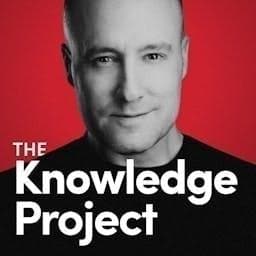Brendan Keeler’s path into healthcare interoperability has been anything but straightforward. After early stints implementing Epic in the U.S. and Europe, he helped hundreds of startups connect to provider and payer systems at Redox, Zus Health and Flexpa before taking the reins of the Interoperability Practice at HTD Health. Along the way, his Health API Guy blog turned dense policy updates into plain-language guides, earning a following among developers, executives and regulators.
In this episode, Keith Figlioli sits down with Keeler to examine the “post-Meaningful-Use” moment. They discuss how national networks like Carequality and CommonWell solved much of the provider-to-provider exchange problem, only to expose new gaps for payers, life-science firms and patients. Keeler says the real action right now is in three places where the biggest, most dramatic changes are about to happen:
- Antitrust pressure on dominant EHRs. Epic’s push into ERP, payer platforms and life-sciences services could trigger “leveraging” claims that force unbundling, similar to cases already moving through federal court.
- Information-blocking enforcement. Recent lawsuits show courts siding with smaller vendors when incumbents restrict data access, a trend Keeler believes could unwind long-standing moats around systems of record.
- A CMS-led shift from policy to execution. With ONC budgets flat, Keeler sees CMS using its purchasing power to unblock Medicare claims data at the point of care, expand Blue Button APIs, and accelerate work on a national provider directory, digital ID and trusted exchange frameworks.
Keeler’s optimism is pragmatic. AI agents may someday chip away at entrenched EHR “data gravity,” but real progress, he says, will come from steady, bipartisan layering of HIPAA, Cures Act and TEFCA foundations.
He also pushes back on venture capital’s “system-of-action” thesis. Enterprise EHRs remain sticky because switching costs—massive data migration and workflow retraining—are measured in decades, not funding cycles. AI could reduce these problems, but only slowly and only if underpinned by trusted exchange standards.
Zooming out, Keeler describes a policy arc that starts with provider-to-provider exchange, widens to payer and patient access, and ultimately points toward a nationwide digital ID that could streamline consent and credentialing. For innovators, his north star is clear: build for identity-verified, standards-based exchange; assume open APIs will become table stakes; and judge success by the friction you subtract from everyday care—not by how flashy the demo is.
To hear Brendan Keeler and Keith unpack these issues, listen to this episode of Healthcare is Hard: A Podcast for Insiders. Please note that this episode was recorded earlier this summer, before the CMS meeting, and that some developments have occurred since then.




































